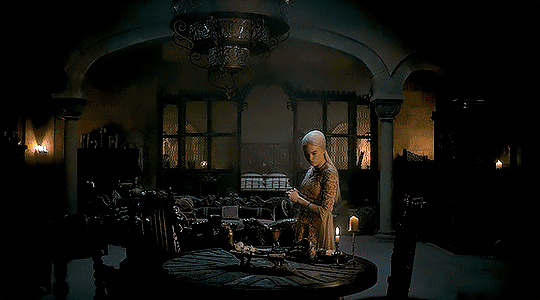#Sparer
Explore tagged Tumblr posts
Video
youtube
Krall & Bubeck: Habecks Steuerideen bedrohen Sparer!
1 note
·
View note
Text
„Dass ein Viertel aller #Geldhäuser / #Banken immer noch keine #Tagesgeldzinsen zahlt, wirkt knapp ein Jahr nach der ersten #Leitzinserhöhung wie aus der Zeit gefallen“, sagt Oliver Maier, Geschäftsführer von Verivox Finanzvergleich.
0 notes
Text

#tv shows#tv series#polls#tales from the darkside#paul sparer#1980s series#us american series#have you seen this series poll
24 notes
·
View notes
Text



unfortunately, they learned from Starlo.
I might post these two more often because it’s the only thing I uniquely can offer so….if you like my ultra rarepair….keep coming back…I want you here….please….
#undertale#deltarune#clover undertale yellow#sparrow (kindness)#clover x sparrow#clarrow#I CANT THE SHIP NAME#do u prefer sparer like#true pacifist ahh name#justice x kindness#green soul#kindness soul
13 notes
·
View notes
Video
youtube
Lashed By Brooke Plainview Incredible Five Star Review by Marcia Sparer
0 notes
Video
youtube
Lashed By Brooke Plainview Incredible Five Star Review by Marcia Sparer
0 notes
Text


"There simply isn’t enough space for Rhaenyra to occupy the apartment alongside Laenor, two young sons, and a newborn baby. “ It showed her disorganization—not having her own space, really, and still living in her bedroom with her children. She couldn’t compartmentalize things,” Richards says. “Her room becomes cluttered, whereas Alicent’s becomes emptier.” (...) As Alicent grows to embrace her Hightower heritage, green begins to dominate the space—and the more devout she becomes, the sparer her chambers look. It’s a reflection of Alicent’s strong desire for order and control.
Rhaenyra's and Alicent's chambers in House of the Dragon throughout the first season
#house of the dragon#rhaenyra targaryen#alicent hightower#hotd s1#hotd edit#dailyhotdgifs#hotdcentral#gameofthronesdaily#hotdedit#*mine: gifs#*mine: hotd#*mine#hotd production notes
1K notes
·
View notes
Text

Shoji screens have always lent themselves to endless variations. Kathleen and Michael Sparer chose an Art Deco motif to transform their California ranch house, rendering the designs in various finishes and sizes throughout the house. In the master bedroom, a blond hardwood from Malaysia called ramin has been used with fiberglass to complement the olive ash burl furniture. The walls have been glazed with brush, sponge and gauze. Etching by Sacramento artist Leslie Toms.
At Home With Japanese Design: Accents, Structure and Spirit, 1990
#vintage#vintage interior#1990s#90s#interior design#home decor#bedroom#canopy bed#house plant#Japanese#style#furniture#shoji screen#neutral#Leslie Toms#California#ranch#home#architecture
422 notes
·
View notes
Text
Currently Watching Daredevil: Born Again...

It's very on the nose for how I'm feeling at least, with orange do do once again picked by the people, which is therapeutic for me (I watched all the horror and dystopian stuff last time with the quarantine too). It seems to be centering in the character journeys and challenges in a way that reflects the current goings on, writ smaller, via NY's politics and the attempt to balance the dirt, deeply weighty baggage, and keeping oneself together despite having a conscience and wanting to do so much more.... WHEW! I FEEL YOU MATTY!!! ...and of course some of the best players in the MCU when it comes to really getting into the human crust of these characters and, IMO the ABSOLUTE most interesting and BEST hero/villain chemistry. I really like the flavor this time. It's sparer, calmer, less "old school" MCU color and quip and more, again for me at least, catharsis and comfort given our current nazi oligarchy. I liked those cut-aways to the people of NY's thoughts about Fisk. Both the ones who loved/lauded the worst aspects of the man, and those who saw through them and remained resolute about remembering what he is. ...But the boiling points so far, are much more intense, even though there are fewer. -The violence sharper and more emotionally impactful both narrative-wise and basic fight choreo-wise, i.e. bloody compound fractures, blood splatter, and a big loss (yeah it sucks, but it feels necessary). So, far I give this VERY high marks. We are getting both character weight and a more somber but no less intriguing flavor to Daredevil. GOT DAMMIT I missed these folk. So far.... #ThisIsARec
#matty#fisk#'vanessa' if you heard this in fisk's rasp#me and you#foggy#karen#no spoilers#missed this show!!!#disney don't fuck it up#FYI I like pain as long as it's interesting#I see a lot of people whining and upset#that's what it's supposed to do.#daredevil#daredevil born again#dba#daredevil: born again
14 notes
·
View notes
Text










sparer casey + vale text posts (9/?)
#one of those was meticulously cropped to make it clear why it's funny so please appreciate that#//#brr brr#//ht#2746 text posts
19 notes
·
View notes
Text
Gain Huge Success With Fastrenteinnskudd
Fixed interest deposits are an investment instrument in which your money can be invested for an agreed-upon amount of time and guarantee of return for its entire duration. They're popular among those who seek out risk-free returns as you will earn some fixed rate of returns for the duration of your investment. The investment will provide guaranteed returns over an indefinite period that spans from days to years. At the end of its tenure, the earnings from FDs could be either deposited directly into the investor's account or reinvested. If the online users utilize this website on the internet, they will be able to get more information on how do fixed interest deposits work?.
30 notes
·
View notes
Text
one of my favorite fics ever is a two part series that also makes me wish there was a way to politely walk up to a stranger and go sculptor on a slab of marble mode on their fic.
i've run into another author whose fics i do like quite a bit, but they trigger the same impulse even more.
i consider myself a maximalist and an enjoyer of florid prose and a sparer of darlings. i have a lot of patience for mixing up words and other language wonkiness as an english as a second language writer.
but to just casually call rain "the sky's sweat" during a serious moment.......
#my tone here is fond bewilderment#clearly this author is having fun!! that's not only okay but good!#still took me out
5 notes
·
View notes









